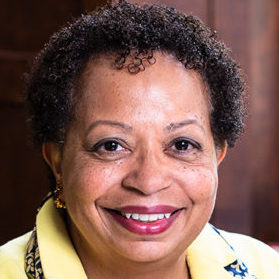Here is this week’s news of grants or gifts to historically Black colleges and universities or for programs of particular interest to African Americans in higher education.

Trinity College in Hartford, Connecticut received a $180,000 grant from the Andrew W. Mellon Foundation to support planning for a convention of women of color leaders in higher education and other sectors. The goal is to study, develop, and implement plans to address the underrepresentation of women of color within leadership ranks across the United States. Joanne Berger-Sweeney, president of Trinity College serves as principal investigator for the project.
Florida International University received a $400,000 grant from the W.K. Kellogg Foundation to support the StartUP FIU Food Digital Transformation Program. The program is designed for low-moderate income entrepreneurs in the food industry, especially entrepreneurs of color, who are disproportionately affected as a result of the COVID-19 pandemic.
Historically Black Texas Southern University received a three-year, $500,000 grant from Cadence Bank to support the Future Bankers Leadership Program in the university’s Jesse H. Jones School of Business. The funds will support programs to introduce business students to the industry through a formal curriculum, interaction with executives and industry mentors, and commercial banking internships. Scholarships will also be available.
 Michigan State University received a three-year, $600,000 grant from the William T. Grant Foundation that will explore whether a series of professional learning sessions for teachers can reduce the number of discipline referrals for youth in the earliest grades, kindergarten through second grade. They plan to involve 400 teachers and principals in 40 mostly urban schools across Michigan. “We know from research that teachers read students’ behavior in culturally nuanced ways, based on their own assumptions and stereotypes about different racial groups,” said Dorinda Carter Andrews, lead researcher on the new project. “There are large numbers of Black students in urban schools; however, their teachers are often White. And they are more likely than teachers of color to over-refer Black students for what is deemed negative behavior.”
Michigan State University received a three-year, $600,000 grant from the William T. Grant Foundation that will explore whether a series of professional learning sessions for teachers can reduce the number of discipline referrals for youth in the earliest grades, kindergarten through second grade. They plan to involve 400 teachers and principals in 40 mostly urban schools across Michigan. “We know from research that teachers read students’ behavior in culturally nuanced ways, based on their own assumptions and stereotypes about different racial groups,” said Dorinda Carter Andrews, lead researcher on the new project. “There are large numbers of Black students in urban schools; however, their teachers are often White. And they are more likely than teachers of color to over-refer Black students for what is deemed negative behavior.”

